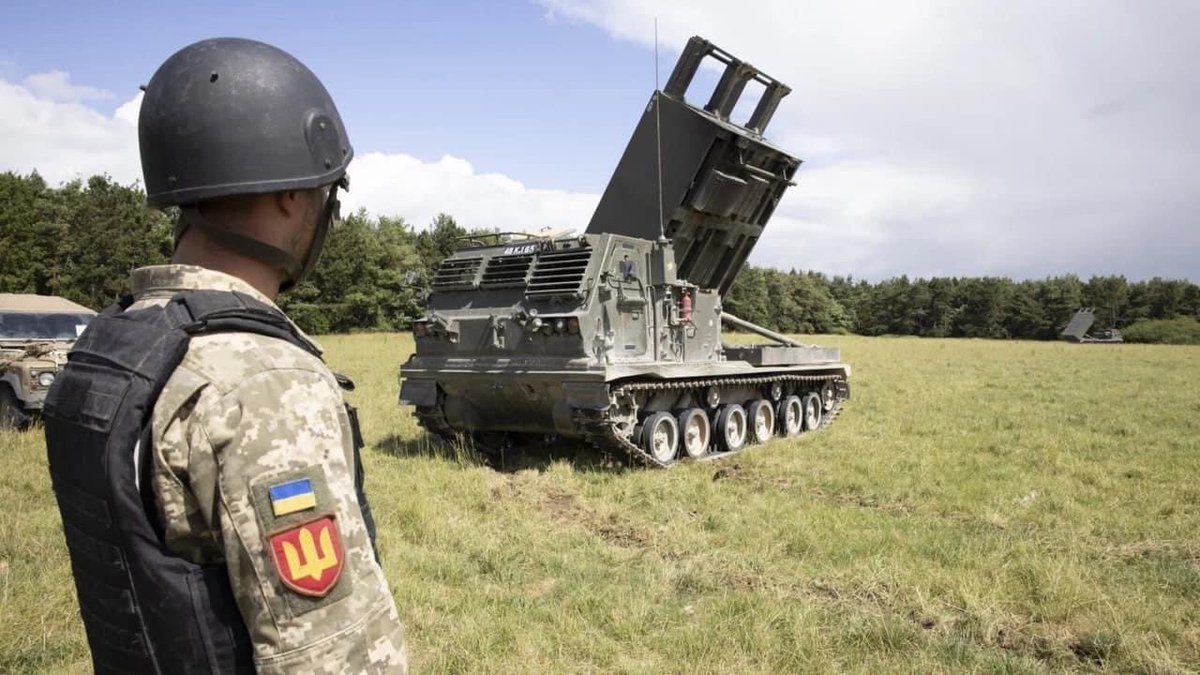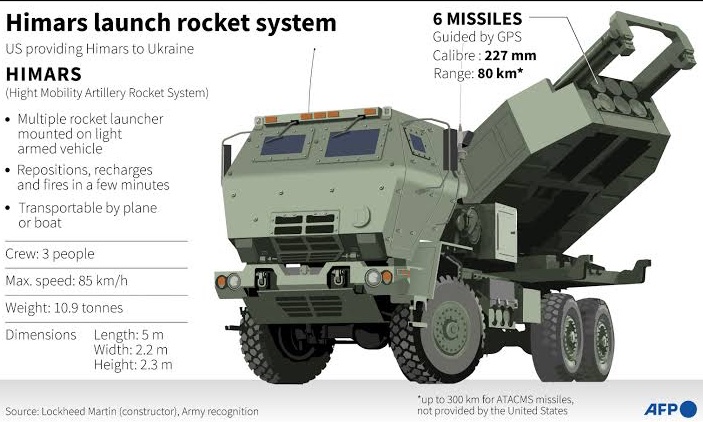8,783 views
Vladislav Surkov is reportedly arrested. For years he ran Russian domestic politics and later Kremlin's policy in Ukraine. On Feb 15 he published an article calling for the war to reannex Ukraine, Belarus and Baltics. Today I'll discuss his role in Putin's rise to Presidency🧵 
Surkov has mixed heritage. His dad is Chechen - Andarbek Dudaev, his mom is Russian - Zoya Surkova. He spent his childhood in a Chechen village where he was known as Aslanbek Dudaev. But then his parents divorced and his mom took him to Russia proper, where he turned to Vladislav 
After school Surkov served in army, in military intelligence. With the start of Perestroika, commerce was allowed in the USSR. In 1987 Surkov started working for Khodorkovsky, who would soon become the richest oligarch in Russia. Here you see Surkov, Nevzlin and Khodorkovsky 
How did Khodorkovsky get so rich? This story reflects the origins of many oligarchic fortunes. Khodorkovsky was the chief of local NТТМ - Office for Scientific and Technological Initiatives of the Youth. NTTM was a department of Komsomol - the youth branch of the Communist Party 
Until Perestroika positions in these NТТМ centres were not that lucrative. Komsomol functionaries serving there didn't have much leverage. But then everything changed. To understand why, we'll do a little trip into the Soviet monetary system and how did the Soviet money function 
In 1929-1932 Stalin imposed total control over the Soviet economy. All enterprises were turned into state enterprises. To facilitate his statist model Stalin built new monetary system. In traditional system there was one circular flow of money. Stalin created two separate flows 
The first one was the cash flow. The state used cash to pay wages to people and people used it to buy stuff from the state. Second flow was noncash. Government enterprises and agencies used it for transactions with each other. Cashing out noncash money was absolutely prohibited 
Why would Stalin do that? Largely to pump money into the industry without triggering hyperinflation. Government created as much money as necessary for construction + subsidies, but made sure it won't be used by regular people for buying stuff. Hence prohibition for cashing out 
Prices on retail market were quite arbitrary. For example public transport was far cheaper than it really costed to the state. Meanwhile cars were super expensive, the state selling them with like 200-300% profit. State earned money selling cars and thus funded the public transit 
And yet noncash prices were *way* more arbitrary. For example, textile and aerospace industry production was valued in noncash roubles. But regarding the cost of production, the weight of a noncash ruble in the latter could be hundreds or thousands times higher than in the former 
The system worked as long as the Soviet economy remained strictly statist. As long as the prohibition to cash out noncash money was enforced. But in Perestroika they experimented with introducing market elements to the statist economy and this new hybrid system didn't work at all 
In 1988 the new Law on Cooperation officially allowed the commerce. In theory it would allow normal people to do business ("кооператив"). In practice however, Soviet/Russian "business" was mostly about government functionaries cashing out their administrative leverage 

A government agency (factory, ship company, local government) would establish a private firm (cooperative) with the agency's CEO as the main beneficiary. CEO of a state agency would plunder it in order to transfer resources to his private firm. That's why they were so lucrative 

In 1988 NTTMs were allowed to break a great Soviet taboo on cashing out the noncash money, making them a leverage for plunder. An NTTM chief would establish a private cooperative, cash out government noncash funds and transfer them to his cooperative, effectively privatising them 

Of course, NTTM chiefs started cashing out as much noncash funds as they could. That triggered hyperinflation, destroying the frailing Soviet economy, but created some enormous fortunes. Such as the one of Khodorkovsky - the future richest oligarch in Russia 

This shows why the NТТМ leadership is so overrepresented among the richest Russians. They used the crony opportunities Komsomol gave them and cashed out lavishly. Moreover, it shows why former Komsomol leaders in general are so overrepresented among the current Russian elites 

Soviet propaganda portrayed Komsomol as idealistic youth faithful to the Leninism. This was often true in 1920-1960s. However, by the 1980s true believers were selected out. New leadership consisted of incredibly cynical and opportunistic folk - such as Khodorkovsky or Matvienko 
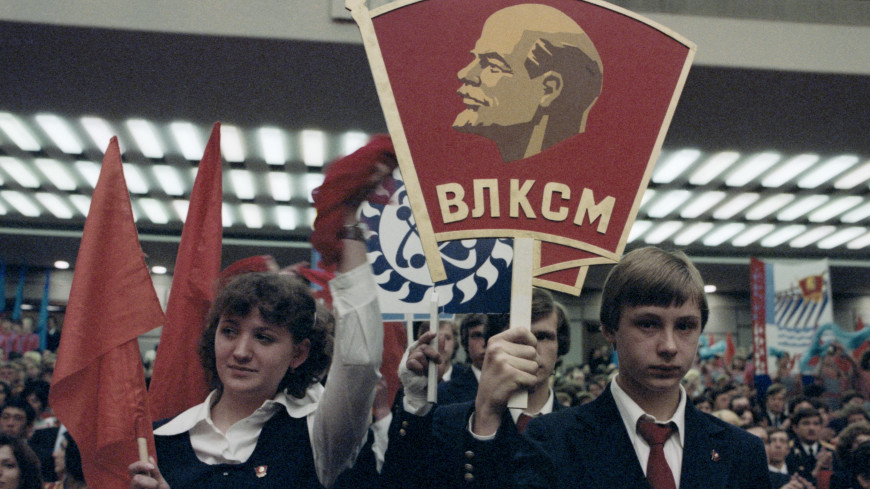
Upward mobility within the adult Party was difficult by the 1980s. Frailing gerontocracy occupied all the positions of power and refused to leave. So young smart and cynical Komsomol guys waited for their chance, and exploited the collapse of Soviet system better than anyone else 

Let me quote Dorenko:
"We'll live for 130 years. My kids and grandkids will live in my shadow. Only my great-great-grandchildren will see the sky. We'll fuck everyone. Why us? Cuz we've plundered the country. We killed, slandered our fathers. That's why our generation is unique"
"We'll live for 130 years. My kids and grandkids will live in my shadow. Only my great-great-grandchildren will see the sky. We'll fuck everyone. Why us? Cuz we've plundered the country. We killed, slandered our fathers. That's why our generation is unique"

So Surkov started working for a crony Komsomol official Khodorkovsky as his PR deputy. Khodorkovsky's star was rising and Surkov's too. Soon he was leading the PR service for the richest oligarch in Russia, controlling its largest oil company 

Surkov was too smart too put all eggs into one basket. While working for Khodorkovsky he consulted the government. So in 1999 when Voloshin became the chief of Yeltsin's Presidential Adimistration, he chose Surkov as his deputy. So he left his former boss for the new Kremlin job 

Surkov became Kremlin's deputy its domestic policy. His most important task was "drowning" the ousted ex-PM Primakov and advancing new Yeltsin's successor - Putin. Putin had full support of the Kremlin, but was totally unknown. You needed to make him electable 

Putin had Kremlin, but Primakov had regional elites. 84 out of 89 governors supported Primakov. And governors used to have a lot of power back then, especially leaders of major cities like Moscow and St Petersburg. Meanwhile the unknown Putin's party "Unity" had zero governors 

In early 1999 nearly 100% of the non-Kremlin political establishment supported Primakov seeing him as the obvious successor. Those who didn't were usually outcasts whom Primakov didn't accept for some reason. And yet, Kremlin did everything they could to prevent Primakov's rise 
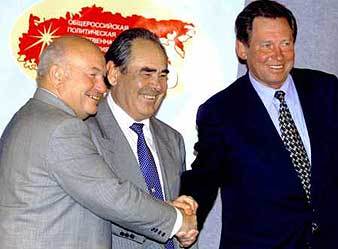
Surkov personally talked with governors and persuaded 39 of them to join Putin. So now Putin had 39 and Primakov only 45. How did Surkov accomplish it? First, he made it clear that Kremlin won't allow Primakov to win. The fact that Putin had dossiers on all of them might help too 

Surkov also did fund-raising. Berezovsky and Abramovich were the two biggest donors for the Putin's campaign, but there were many others. On average businessmen would donate just 10 million dollars each - more like insurance in case Putin wins 

A clique that pushed Putin to power was deeply interconnected. Berezovsky knew Putin since early 1990s when he worked in St Petersburg Government. Reportedly it was Berezovsky who first proposed to the Family that former Sobchak's deputy could become a heir to the Russian throne 

Btw, watch this interview with Putin who just moved to Moscow in 1996. He talks as a shy nervous civil servant who owes everything to his superiors and thinks that the presidential household management is the work which suits his talents best
Let's discuss Berezovsky clique. Media tycoon Berezovsky was the mastermind. Voloshin, his former aide who would later lead presidential administration was a numbers guy. And Dorenko was a wordcel, or perhaps *the* wordcel. The most powerful reputation destroyer in Russia 

I like the story of how Berezovsky hired Dorenko. In 1994 enemies tried to kill Berezovsky. They put a bomb into his car. The explosion killed his driver but only burnt shellshocked Berezovsky himself. He was hospitalised. A TV host Dorenko came immediately to make a report 
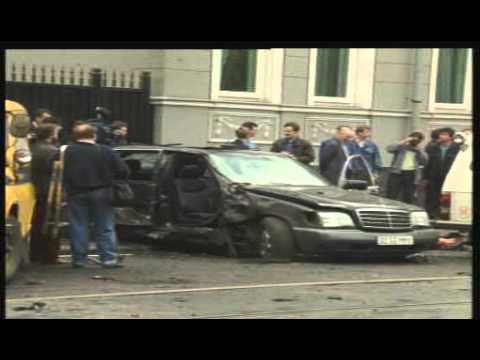
Dorenko commented the assassination attempt
"I don't believe an honest man can become that rich. Ofc Berezovsky is a criminal and fights with other criminals. That's ok. Unfortunately, normal people suffer. Imagine if some regular woman, a teacher walked nearby and was killed?"
"I don't believe an honest man can become that rich. Ofc Berezovsky is a criminal and fights with other criminals. That's ok. Unfortunately, normal people suffer. Imagine if some regular woman, a teacher walked nearby and was killed?"

Dorenko told:
"Let's make a polygon where scumbags like Berezovsky will hunt each other. Let them shoot, blow up, flay each other alive and make belts out of leather. So normal people won't suffer"
Berezovsky, burnt and shellshocked, loved it:
"I need him". Dorenko was hired
"Let's make a polygon where scumbags like Berezovsky will hunt each other. Let them shoot, blow up, flay each other alive and make belts out of leather. So normal people won't suffer"
Berezovsky, burnt and shellshocked, loved it:
"I need him". Dorenko was hired

Dorenko was the heavy artillery of Berezovsky. He worked closely with Voloshin who translates financial documents "on a human language" so Dorenko could understand them. In 1999 Berezovsky, now Kremlin's chief of staff Voloshin, and telekiller Dorenko cooperated to boost Putin 

Consider how Dorenko drowned Primakov, by far the most popular politician in the country. He didn't *technically* attack him. He acted smarter. Primakov just had a knee surgery. So Dorenko discussed it on TV with all medical details and even broadcasted a footage of the surgery 

Dorenko didn't criticize Primakov. He rather conveyed the idea that Primakov was too old and frail and thus a bad choice for the country. Even if viewers were appaled by Dorenko's take, they would still associate Primakov with the footage they saw. That undermined his election 

While Surkov was pressuring governors to join Putin, his boss Voloshin was working on a national level. Three strongest parties in Russia were Communists, Fatherland (Primakov) and Unity (Putin). Voloshin made a secret pact with Communists, so that Primakov was isolated 

Once Primakov's MPs realised they will be in a minority in the Russian parliament with Unity + Communists alliance controlling everything, they started leaving Primakov en masse. Primakov's party was destroyed not so much by voters choice as by the court intrigues 

The transfer of power from Yeltsin to Putin went very easily. Look at this photo of Putin's campaign staff celebrating his election as a president. You see Voloshin, chief of Yeltsin's staff and his deputy Surkov. It wasn't a real election, it was a quasimonarchical succession 

After securing Putin's succession, Voloshin considered his job done. He wrote a resignation letter, stating the "transition of power in the country" as a reason and handed it to Putin. Putin smiled and put it away. He decided to keep both Voloshin and Surkov in Kremlin. End of 🧵 

• • •
Missing some Tweet in this thread? You can try to
force a refresh


